To be published in

The Philippines, one of the largest archipelagos in South East Asia with over 7000 islands make up this melting pot of different cultures, languages and ethnicities as well as provide for a wealth of natural resources.
The country was under Spanish colonial rule for almost 350 years until the Spanish American war in 1898 when it became an American colony for about five decades. The Philippines achieved independence from the United States on July 4th 1946 and has since been ruled by the national government which has elected two female presidents in the last twenty years. Plenty of women hold important positions of power within government and private and public institutions.
With the vibrant history comes a very divers social and economic structure and in spite of foreign influences the native moral values like respect of family, veneration of elders, and friendliness, all remain intact. Filipinos honor national heroes whose works and deeds contributed to the shaping of the Filipino nation. José Rizal is the most celebrated ilustrado, a Spanish-speaking reformist visionary whose writings contributed greatly in nurturing a sense of national identity and awareness.
ECONOMY
The Philippines is a developing country with an agricultural base, light industry, and service-sector economy. It has one of the most vibrant business process outsourcing (BPO) industries in Asia. Numerous call centers and BPO firms have infused momentum into the Philippine market, generating thousands of jobs, including Fortune 500 companies.
The Philippines was less severely affected by the Asian financial crisis of 1997 than its neighbors, aided in part by its high level of annual remittances from overseas workers.
Government initiatives are designed to match the pace of development in the newly industrialized countries (NICs) of south East Asia and President Gloria Macapagal-Arroyo pledged to turn the country into a First World state by 2020.
Some of the strategies to streamline the present economy include improvements of infrastructure, more efficient tax systems to bolster government revenues, furthering deregulation and privatization of the economy. Government is also looking to increase trade integration within the region and across the world, at the same time attracting foreign trade and investment.
The Philippines is predominantly an agricultural country, with the bulk of its labor force concentrated in the rural areas. Chief products are corn, sugarcane, coconut, rice, bananas, and other crops such as pineapple, abaca, and tobacco.
Manufactured products such as electronics, textiles, processed foods, metal products and footwear constitute a large bulk of the industry sector. The increase in these manufactures is attributed to an international demand for locally manufactured electronic devices, semiconductors, and microcircuits. Through these export products, the country has developed strong trading ties with Europe as well as neighboring Asian countries.
TOURISM
Lush jungle interior, natural wonders, like the rice terraces, volcanoes, off shore island, great diving, the food and culture, capture the imagination of travelers both domestically and internationally. Reminisce of colonial rule can be found in towns with great examples of Spanish churches and lively fiestas as well as a rich influence in the local culinary culture.
Locals and foreigners alike have many options when choosing a destination. Whether it be the white sanded beaches of Boracay with its great nightlife, diving off Anilao Batangs where you can see 488 different coral species, or go shopping at the biggest mall in Asia in the center Manila, the Philippines caters to everyone’s needs and expectations.
Cebú, one of the most renowned island of the Philippines is the most densely populated of the islands. Heavily developed it has a long bareback bone of a central mountain range, creating opportunities for exploring caves, mountains and waterfalls, appealing to the adventure traveler.
From enjoying the natural wonders within its borders to engaging in the many different business opportunities the Philippines is truly the “pearl of the orient”.
| See also: |
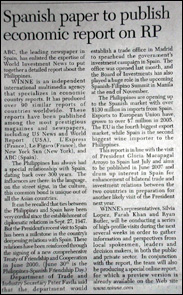
Read the article on World Investment News and ABC published in:
|
- Manila Bulletin - Wednesday, November 15th
- Manila Times - Wednesday, November 18th
- Manila Standard - Tuesday, November 21st
|


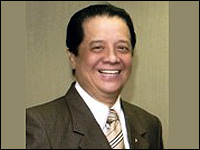 S.E. Joseph D. Bernardo y MedinaEmbajador de Filipinas en EspañaGobierno
S.E. Joseph D. Bernardo y MedinaEmbajador de Filipinas en EspañaGobierno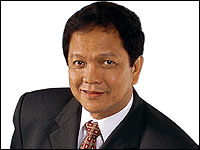 Mr. Victor ValdepeñasPresident & CEOUnion Bank
Mr. Victor ValdepeñasPresident & CEOUnion Bank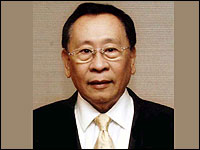 Alberto G. RomuloSecretary of Foreign AffairsGovernment
Alberto G. RomuloSecretary of Foreign AffairsGovernment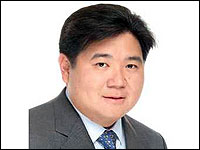 ANTHONY T. HUANGEXEC. VPStore Specialists Incorporated – Rustan’s Marketing Corporation
ANTHONY T. HUANGEXEC. VPStore Specialists Incorporated – Rustan’s Marketing Corporation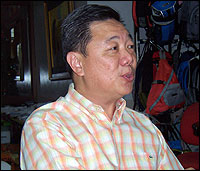 Rudy TanCEOBurlington Industries
Rudy TanCEOBurlington Industries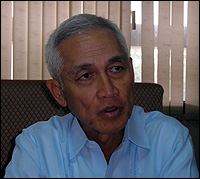 Hon. Margarito Gary TevesSecretary of FinanceDepartment of Finance of the Republic of the Philippines
Hon. Margarito Gary TevesSecretary of FinanceDepartment of Finance of the Republic of the Philippines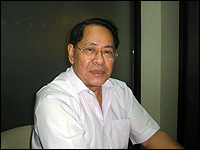 Edgardo AngaraSenatorGoverment of Philippines
Edgardo AngaraSenatorGoverment of Philippines PAN PACIFIC MANILATourism
PAN PACIFIC MANILATourism SEAIRTourism
SEAIRTourism Palasia Hotel PalauTourism
Palasia Hotel PalauTourism Asian Hospital and Medical CenterHealth
Asian Hospital and Medical CenterHealth The Philippine Board of InvestmentGovernment Agency - Investment Promotion
The Philippine Board of InvestmentGovernment Agency - Investment Promotion SOCIAL SECURITY SYSTEMGovernment Agency - Investment Promotion
SOCIAL SECURITY SYSTEMGovernment Agency - Investment Promotion Burlington Industries IncManufacturing / Industrial
Burlington Industries IncManufacturing / Industrial CDI Sakata Inx CorporationManufacturing / Industrial
CDI Sakata Inx CorporationManufacturing / Industrial Banco de OroBanking
Banco de OroBanking Land Bank of the PhilippinesBanking
Land Bank of the PhilippinesBanking UNION BANKBanking
UNION BANKBanking Teleperformance PhilippinesBusiness Processing
Teleperformance PhilippinesBusiness Processing STORES SPECIALISTS, INCRetail
STORES SPECIALISTS, INCRetail RUSTAN MARKETING CORPORATION (RMK)Retail
RUSTAN MARKETING CORPORATION (RMK)Retail